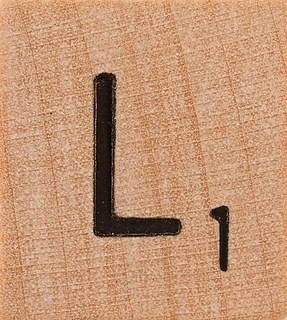
(If you haven’t read “K” yet, I recommend you do so before reading this post)
“When people speak of great men, they think of men like Napoleon – men of violence. Rarely do they think of peaceful men. But contrast the reception they will receive when they return home from their battles. Napoleon will arrive in pomp and in power, a man who’s achieved the very summit of earthly ambition. And yet his dreams will be haunted by the oppressions of war. William Wilberforce, however, will return to his family, lay his head on his pillow and remember: the slave trade is no more.” – Lord Charles Fox
For those of you who haven’t seen the movie “Amazing Grace,” what you just read is the quote given by Lord Charles Fox (played by Michael Gambon) at the end of the film, when William Wilberforce successfully (and peacefully) puts an end to slavery in Britain. The film was set in 1833, and it is based on a true story.
About 30 years later, on the American continent, another group of slaves were set free. And the champion of their freedom was a man named Abraham Lincoln: A man that I have revered from the time I was a young boy. Both William Wilberforce and Abraham Lincoln essentially ended their political careers (and lives) with the abolishment of slavery. However, the irony that I present to you is that Abraham Lincoln is far more like Napoleon than William Wilberforce, regardless of what you have likely been told throughout your life.
I’ve always been taught that Lincoln was akin to our founding fathers. Like them, he was a patriot who fought for liberty with valor. He was the Great Emancipator, and the man who saved the country in its darkest hour. However, after recently studying more about Mr. Lincoln, I have sadly found him to be something else. I recognize full well that if somebody were to tell me this even one year ago, I would have shrugged them off as a loon. Some might call any notion that Lincoln is anything other than a saint a conspiracy theory, not to be taken in the least bit seriously. I know this because I thought the exact same thing. My view had always been that Lincoln set the slaves free, and there is nothing nobler a man can achieve. However, I believe that view blinded me from the real Lincoln.
Any candid look at undiluted history proves Abraham Lincoln is not like our founding fathers in the
least bit. They wanted smaller, less powerful government, while he wanted bigger, more powerful government. They wanted the government to serve the people, and he wanted the people to serve the government. Our founding fathers held individual rights to be the most precious things we have, while Abraham Lincoln viewed his mission to “save the union” (and the union itself) far more important than anyone’s individual rights.
I am writing this post because I hold our founding fathers in very high esteem, and I believe the Constitution is an inspired document that was designed for the wellbeing of all mankind. I am writing this post because I want people to understand that the government our founding fathers created was drastically altered by Abraham Lincoln, and because the Constitution has slowly come to mean next to nothing in our nation today—a precedent that President Lincoln established more than anyone. I am writing this post because I want people to see that slavery was
not why Lincoln fought the Civil War (and even if it was, slavery could have been ended peacefully as it was in multiple other countries; see Wilberforce, William). I want people to see that the good Lincoln accomplished has given politicians justification to duplicate the bad he did without consequence, and that the implications of this justification explain a lot of our nation’s problems. Finally, I want people to see that Lincoln
did save the union, but only after he nearly beat it to death with a crowbar.
I am not going to hash out my political opinions ad nauseam and try to undue a life’s worth of education you have likely endured. I am merely going to ask you to try to answer the following questions. And if you don’t know the answers, I encourage you to find them. And contrast what you find with what our founding fathers fought for. (Hint: Learn what historians who didn't name their son "Lincoln" have to say) And if you never cared for our founding fathers in the first place, or if you think the Constitution is outdated, you are excused from this exercise. Class is dismissed.
* What were Lincoln’s politics? For example, what platforms (economic and otherwise) did he campaign on? What were the political platforms of the Whigs (Lincoln’s first party of choice)?
* Lincoln never stated that the Civil War had anything to do with slavery. So, what were his reasons for going to war?
* Lincoln is lauded as a great politician. Why could he not resolve the conflict with the South peacefully? Did he want, or even try, to resolve things peacefully with the South?
* What were the reasons the South gave for seceding in the first place? (Hint: It wasn’t slavery)
* Were Lincoln’s thoughts about secession (that it was forbidden by the Constitution) consistent with those of our founding documents and founding fathers?
* Many historians (for and against Lincoln) have referred to him as a dictator. What did he do that compelled this analysis?
* Were Lincoln’s
actions prior to and during the war (his well-written
speeches set aside) consistent with or contradictory to the Constitution?
* What were the reasons laid out by Thomas Jefferson in the Declaration of Independence for our founding fathers’ seceding from Britain and the rule of King George? Do Lincoln’s actions before and during the war share any similarities with those of King George’s?
* What were the long term results of Lincoln’s administration? What were the effects his administration had on state sovereignty, the power of the federal government, the checks and balances of the federal government, federal government’s involvement in the marketplace, and the Constitution?
* Why do many historians view the Emancipation Proclamation as a political gimmick (setting aside what it later became known as)? What were Lincoln’s views on African Americans? Could he be classified as a racist?
* If George Washington, Thomas Jefferson, and Benjamin Franklin met Abraham Lincoln in a tavern, which of the three would draw his sword first?
**********************
Today’s recommendation: Read the Declaration of Independence, and look for the specific grievances listed as reason for secession (and pay attention to how Jefferson stressed the independence of each individual state). Also, if you want to take your study another step further, read the Kentucky and Virginia Resolutions of 1798. Also, I strongly recommend you not burn my house down for writing this post.






